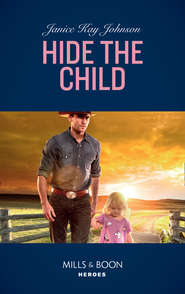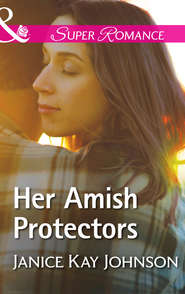По всем вопросам обращайтесь на: info@litportal.ru
(©) 2003-2024.
✖
Christmas Presents and Past
Автор
Год написания книги
2018
Настройки чтения
Размер шрифта
Высота строк
Поля
So easily, Dinah began to cry. “He doesn’t seem as worried about dying as he is about seeing things like the massacre at My Lai. Everyone says stuff like that happens all the time. What if he has to shoot a child, or a pregnant woman, or…or push someone out of a helicopter?”
She’d heard a story from a guy at a party who’d been drafted and was back. He talked about taking guys up to interrogate them, then when they were done, just pushing them out. She hadn’t been able to tell when he talked whether he was horrified by what he’d done, or whether things like that were so commonplace over there, he didn’t see anything wrong with it. Gooks, he’d said. And he’d laughed as he talked about this “gook” flailing in the doorway before being sucked out and plummeting toward a rice paddy far below. Saying “gook,” Dinah thought, meant that he hadn’t thought of that guy desperately trying to stay in the helicopter as a man, like him.
Or maybe he just couldn’t let himself think of him as a man.
What if Will came home safely but changed so much that he could talk like that about terrible things he’d done? Dinah couldn’t believe he would, but the possibility scared her as much as anything.
“Will you call me whenever you hear from him?” Mrs. O’Keefe begged. “I’ll do the same.”
“Of course,” she promised, and they hugged for the first time.
Will and she spent the day of Christmas Eve together. The weather was cold and damp, but they walked out on the breakwater anyway, holding hands. Sea spray dampening their hair and the surge of the waves as background music, he cupped her face in his hands.
“Promise me if you meet some guy, you won’t say no because you’re afraid of hurting me. You’re still in high school, Dinah. You ought to be able to have fun.”
“Have fun?” Her voice broke. “How can I have fun, knowing you might already have been wounded and I wouldn’t have heard yet?”
She couldn’t say, Knowing you might already be dead.
“I don’t want you to stay faithful out of guilt.”
She tried for a smile that must have been an awful sight. “It won’t be guilt. I love you, Will.”
He closed his eyes for a moment, then said in a thick voice, “I love you, too.”
She unwrapped his present while they sat in the car in front of her house. Inside the paper was a shoe box, full of candles. Twelve of them, she counted. They were different sizes and shapes: a toadstool, a troll, a flower. Their scents mingled, creating a heady fragrance.
“One for every month I’ll be away,” he said. “When you burn the last one, I’ll be home.”
“Oh, Will!” Crying again, she flung herself into his arms.
“Promise you’ll write,” he said against the top of her hair. “Even if you meet someone else.”
She wrenched back. “I won’t meet someone else!”
“Even if you do,” he repeated, almost steadily.
Feeling her face crumple, she nodded. “I promise,” she whispered, tasting the tears.
Neither of them could say the words Merry Christmas.
Chapter 3
Two weeks after Christmas, Will’s Dad drove him to the Army base.
At first Will’s letters were hopeful. Basic training wasn’t so bad. Dinah wouldn’t believe the muscles he was developing, he bragged.
She and his mother exchanged news, phoning each other the minute a letter arrived. Dinah was now calling his mother by her first name, Barbara, instead of Mrs. O’Keefe.
With support waning for the war, Will wrote, he and the other recent draftees believed they might never end up abroad at all.
The 3rd Marine Division was sent home at the end of November, and the 3rd Brigade 82nd Airborne just a few weeks ago. Why would they withdraw experienced troops and then send a bunch of us who have to be taught how to tell the barrel of a rifle from the butt?
Dinah wanted to believe he was right, but she read in the paper about how the government was spying on everybody who participated in any kind of antiwar protest, and that didn’t seem to her the action of an administration committed to ending the war and healing the country. And even though troop levels were declining, CBS News reported there were still 475,200 U.S. military personnel left in Vietnam at the end of 1969. With one-year enlistments, hundreds of thousands of those must need replacements, and the draft had been held for a reason.
She didn’t say that aloud to his mother, though, or in her letters to Will. As it turned out, she didn’t need to. A hastily scribbled note arrived, telling her his battalion was shipping out.
Dinah kept writing almost every day. She was afraid that her day-to-day news must seem pedestrian to him, but Will assured her that wasn’t true. So she hid her worries and continued to write about classes, local gossip and her own struggle with her parents over her future.
We settled on a compromise, she wrote, pausing with her pen above the paper as she remembered the last in a long line of scenes. Beside her burned a tall, twisted candle, the first she’d lit to measure the months until Will would be home, filling her room with a sweet, fruity fragrance that reminded her of Grape Nehi.
The latest scene had taken place over the dinner table. It seemed as if half the time Dinah and her mother ended up silently scraping most of the food into the garbage. Nobody had much appetite when they were fighting. If she and her father weren’t clashing, then Stephen and he were. They fought over Stephen’s hair, his grades, his friends, his music. Dinah, at least, was still torn between the desire to please her parents and her outrage at the world her generation would inherit. Her brother was far more outspoken and unapologetic about his rebellion.
But Stephen hadn’t been home for dinner tonight. Lucky her, she had her father’s full attention. Face apoplectic, he’d slammed his fist onto the table, making dishes rattle. “You’re going to college and that’s final!”
Dinah’s heart was pounding so hard she could hardly breathe, but she kept looking at him with outward calm and said, “What if I don’t?”
Her mother hastily interceded. “Dinah, you have your whole lifetime ahead of you! We simply want to make sure you have the grounding you need to succeed. You’re too good a student to quit now….”
“If you don’t go, you’ve had the last penny of support from us,” her father roared.
“Are you going to tell me what I have to major in, too?” she yelled back. “What if I go for Women’s Studies?”
“You know that’s not…” her mother started to say.
He bellowed some more. Dinah jumped up and fled to her room, so upset she was ready to throw some clothes in a bag and take off. Susan’s and Christina’s parents were too conventional to let her stay with them, but she bet Monique’s mom wouldn’t care if she moved in until graduation. She could get a part-time job to supplement her summer’s earnings and help buy groceries.
She’d actually started grabbing clothes from a drawer when there was a soft knock on her door.
“Who is it?”
“May I come in?” her mother asked.
After a moment she sank down onto the bed, hugging an armful of shirts to her chest. “It’s your house.”
Opening the door, her mother said mildly, “I’ve always respected your right to privacy.”
Tears prickled in Dinah’s eyes. “I know you have.”
“May I sit down?”
She nodded.
They sat side by side for a long moment.
“Honey, I know you’re sure cooking is what you want to do with your life. Your dad…well, he just doesn’t see it as a profession. He thinks short-order cook.”
She rolled her eyes. “If he’d just educate himself…”











